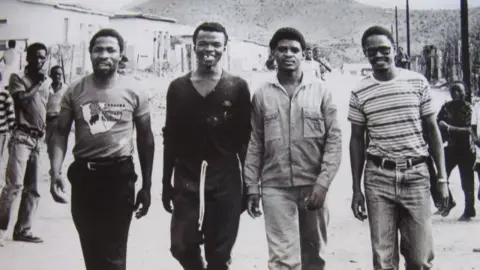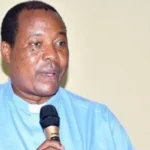South Africa, a nation still grappling with the shadows of its apartheid past, has taken significant steps to revisit and intensify investigations into crimes committed during that oppressive era. This renewed focus on accountability underscores the country’s commitment to justice, reconciliation, and healing.
Historical Context
Apartheid, a system of institutionalized racial segregation and discrimination, lasted from 1948 to 1994. During this period, numerous human rights violations occurred, including torture, killings, and the imprisonment of political opponents. While the end of apartheid ushered in a new democratic government, many perpetrators evaded justice, and unresolved cases lingered, casting a long shadow over the nation’s healing process.
Recent Developments in Investigations
In recent years, South Africa has reactivated and intensified efforts to investigate and prosecute crimes committed during apartheid. The motivation stems from both national reconciliation and international pressure to address past injustices comprehensively. The government’s renewed focus is also driven by the realization that unresolved cases threaten the integrity of the country’s democratic transition.
The Role of the South African Truth and Reconciliation Commission
Established in 1996, the Truth and Reconciliation Commission (TRC) was a landmark effort to confront the past. While the TRC facilitated truth-telling and offered amnesty in exchange for full disclosure, it did not result in criminal prosecutions for many perpetrators. Consequently, some victims and human rights organizations have called for further investigations beyond the TRC’s scope.
Reactivation of Criminal Prosecutions
In recent years, South African authorities have reopened investigations into specific apartheid-era crimes. Notably, the National Prosecuting Authority (NPA) has resumed efforts to hold former security police officers accountable for abuses such as the deaths at the hands of security forces and torture. Several high-profile cases have been revisited, with some accused individuals facing trial decades after the crimes.
For instance, in 2019, the NPA announced plans to pursue justice against apartheid-era security officials implicated in the death of anti-apartheid activist Steve Biko, who died in police custody in 1977. Although legal challenges and political sensitivities complicate these efforts, the renewed investigations demonstrate a firm commitment to addressing past injustices.
International Support and Judicial Efforts
International organizations, including the International Criminal Court (ICC), have expressed support for South Africa’s efforts to pursue accountability. While South Africa is not a party to the Rome Statute, the government has engaged with international partners to strengthen its capacity to prosecute crimes related to the apartheid era.
Domestic courts have also played a crucial role. In recent years, South African courts have convicted individuals for apartheid-era crimes, reinforcing the rule of law and the country’s commitment to justice. For example, in 2017 and 2018, courts convicted several security police officers for crimes committed during apartheid, including murders and torture.
Challenges and Criticisms
Despite these efforts, challenges remain. Political sensitivities, lack of evidence, and the passage of time complicate prosecutions. Some critics argue that the focus on prosecuting apartheid-era crimes may reopen wounds and hinder national reconciliation. Others question whether resources should be directed elsewhere, given ongoing social and economic challenges.
Nevertheless, the South African government maintains that accountability is essential for genuine reconciliation. The pursuit of justice for apartheid-era crimes symbolizes the nation’s resolve to confront its past honestly and ensure that such injustices are never repeated.
Conclusion
South Africa’s renewed investigations into apartheid-era crimes represent a vital step in addressing historical injustices. By reopening cases and pursuing accountability, the country affirms its commitment to justice, healing, and the rule of law. While challenges persist, these efforts serve as a powerful reminder that confronting the past is essential for building a more equitable future.
Email Us on editorial@nnafrica.com













